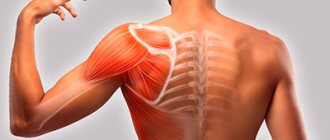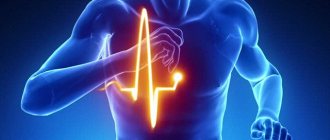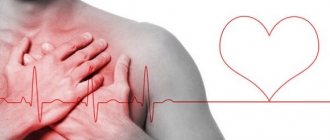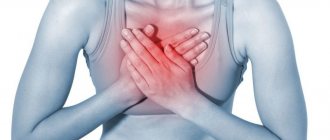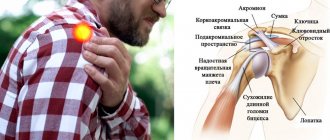Possible reasons
When inhaling cigarette smoke, nicotine, tar and other harmful substances regularly enter the human body; they not only “settle” in the lungs, but also affect vascular tone.
Within a few minutes after smoking a cigarette, a spasm of small vessels - capillaries and arterioles - occurred in the body, this caused an increase in blood pressure and caused the development of oxygen starvation of the brain and heart muscle. When you give up cigarettes, after 12-24 hours all traces of nicotine completely disappear from the blood, its effect on the blood vessels disappears and a sharp dilation of blood vessels can provoke a drop in blood pressure and the appearance of pain in the heart associated with an increase in the load on the blood vessels.
Another common reason why the heart hurts after stopping smoking is a decrease in the concentration of carbon dioxide in the blood and an increase in the amount of oxygen, which also causes an increase in the load on the myocardium. Many smokers note: they quit smoking and now their heart hurts, their heart rate increases, there is a lack of air and a feeling of tightness or pressure in the chest, all these symptoms are similar to those experienced by people who climbed a mountain peak - an excess of oxygen can cause general malaise and pain in the heart.
Unfortunately, pain in the heart can be a symptom of the development of dangerous diseases such as angina pectoris or coronary heart disease, which occur due to disruption of normal blood supply to a certain area of the heart muscle. A sharp change in the level of oxygen and carbon dioxide, dilation of blood vessels and a drop in pressure can cause a reflex spasm of blood vessels and cause cellular necrosis.
Pain in the chest area does not always signal problems in the cardiovascular system; sometimes patients confuse angina with an attack of cholecystitis or exacerbation of pleurisy. If chest pain is accompanied by symptoms of indigestion or increased body temperature, it is necessary to examine neighboring organs to exclude their pathology.
Lethal dose of nicotine for humans
The lethal dose for humans is 0.5 – 1 milligram of nicotine per kilogram of weight.
When smoking one cigarette, a person receives approximately 1 milligram of this substance.
When nicotine intoxication occurs, the prognosis depends on the following factors:
- dose taken,
- age of the victim,
- general health, presence of concomitant diseases,
- duration of intoxication (before medical assistance is provided).
Possible consequences
Most often, pain in the heart area that occurs after nicotine fasting goes away on its own within a few days.
In rare cases, quitting smoking can cause the development of diseases of the cardiovascular system: burning or pressing pain in the heart area, aggravated by movement or breathing, may indicate a developing attack of angina pectoris or even myocardial infarction.
The lack of nicotine can also cause aggravation of the pathology of other organs: bronchopulmonary diseases or diseases of the gastrointestinal tract.
Constant irritation that occurs against the background of nicotine starvation, aggravated by heart pain, often becomes the cause of nervous strain and decreased performance.
Nicotine hit
If after smoking a person begins to feel dizzy, has nausea and the urge to vomit, breaks out in a cold sweat, and the skin becomes pale, it means that a nicotine kick has occurred. It can be caused by the following reasons:
- smoking several cigarettes in a row;
- smoking on an empty stomach,
- smoking immediately after a good night's sleep.
This condition has an extremely negative effect on the functioning of the entire body, especially the heart and brain. It can cause the development of hypertension, atherosclerosis, endarteritis or the appearance of malignant tumors.
CODING FROM SMOKING
What to do?
According to doctors, giving up smoking is no less difficult than giving up alcoholic beverages or any other addiction, so during this period you should take care of your well-being and the state of the nervous system in advance:
- proper rest and restful sleep will help cope with pressure drops and a constant feeling of fatigue;
- If you experience heart pain, you should give up physical activity and try to avoid any negative emotions; long leisurely walks, meeting pleasant people and favorite activities will help you cope with irritation and reduce discomfort in the body.
- If you have a history of cardiovascular diseases or suspect their development, you must immediately consult a doctor and regularly measure your blood pressure and monitor the number of heartbeats - constantly measure your pulse.
- Do not forget about the possibility of exacerbation of diseases of other organs and systems; if pain in the heart appears after smoking, you should visit a pulmonologist, have an unscheduled fluorography or x-ray, since against the background of stress, an unexpected exacerbation or development of diseases is possible.
Allergy to nicotine
Cigarette smoke contains many toxic compounds that can cause serious allergies. Intolerance to any toxin can develop in smokers and against the background of a decrease in general immunity.
When an allergy to tobacco appears, it is not enough for a person to completely quit this bad habit, but also try to isolate himself from inhaling cigarette smoke when being near other smokers.
What not to do?
Pain in the heart can frighten even the bravest person, if this pathology occurs against the background of quitting smoking, often the first instinct of a smoker is the desire to immediately take up a cigarette again, but doctors categorically do not recommend doing this. A nicotine attack against the background of vascular pathology can cause irreversible consequences in the heart muscle - a sharp narrowing of blood vessels can provoke a heart attack or angina attack, and an increase in blood pressure often causes hypertensive crises or even strokes.
Also, without consulting a doctor, you should not take medications that stimulate heart activity, and of course you should avoid drinking strong tea, coffee and other products containing caffeine.
The changes that occur in the body during nicotine withdrawal greatly increase the load on the heart muscle, so you should try to avoid situations that require stress - lifting weights, actively playing sports or being very nervous.
The appearance of pain in the heart is always a dangerous sign and should not be ignored under any circumstances; a visit to a cardiologist or therapist will not only relieve the patient of unpleasant sensations, but can also help timely diagnose many dangerous diseases of the cardiovascular system.
First aid for nicotine poisoning
If signs of nicotine poisoning appear, you should immediately call an ambulance. Before the doctors arrive, the following measures should be taken:
- Place the victim on the floor or other horizontal surface. To prevent vomit from entering the respiratory tract, you need to turn it on its side.
- To make breathing easier, you need to unfasten the collar of your clothing and loosen the belt.
- If the person remains conscious, you need to give him a weak solution of potassium permanganate to drink, which will provoke gag reflexes.
- After cleansing the stomach, it is necessary to give the victim activated carbon or another sorbent used for poisoning.
- You need to constantly talk to the patient, preventing him from falling asleep.
When the medical team meets, it is necessary to inform about the approximate dose of nicotine consumed and the measures already taken. Mild intoxication can be treated at home or on an outpatient basis. But if the victim’s condition may threaten his life, then treatment will be carried out in a hospital.
Medications
Using special medications can significantly increase your chances of quitting smoking. There are three types of medications to treat nicotine addiction:
Nicotine replacement therapy (NRT)
NRTs are the most commonly used medications. They have few side effects and are available both over the counter and by prescription in various forms (chewing gum, tablets, skin patch, inhaler, nasal spray).
NRT medications reduce symptoms of nicotine addiction. Your doctor will help you find the best dosage for you based on your current smoking habits.
Bupropion (Wellbutrin, Zyban). These antidepressants can be used to reduce withdrawal symptoms even if you are not depressed. Common side effects include dry mouth and insomnia (difficulty falling or staying asleep).
Varenicline (Chantix). This medication reduces withdrawal symptoms and, if you start smoking again, may reduce the pleasure you get from nicotine. Common side effects - may cause nausea, dreaming, constipation and drowsiness.
Other options for dealing with nicotine withdrawal
To relieve withdrawal symptoms when quitting smoking, use:
- Use of special pharmaceuticals. These are the drugs that have a mild nicotine-replacement effect, as well as antidepressants and substances that provoke aversion from smoking. These include tablets: “Tabex”, “Lobelin”, “Cytisine”, “Champix”, “Corrida Plus”, “Zyban”, “Brisantine” and others.
- The right diet. The diet should consist of light, fortified dishes rich in minerals. For example - salads, fruits, vegetable purees. You should drink more fluid. It speeds up the body's detoxification process.
- Psychological relief. It is important to occupy yourself with something that distracts you from suffering. This could be active recreation, playing with children. any impressions that could overshadow the psychological discomfort experienced.
Don’t forget: nicotine withdrawal is an extremely difficult condition for the entire body. Don't take it lightly. Better consult a narcologist!
The text was checked by expert doctors: Head of the socio-psychological service of the Alkoklinik MC, psychologist Yu.P. Baranova, L.A. Serova, a psychiatrist-narcologist.
CAN'T FIND THE ANSWER?
Consult a specialist
Or call: +7 (495) 798-30-80
Call! We work around the clock!
Psychological symptoms of withdrawal syndrome when quitting smoking
From the central nervous system the following are observed:
- trembling of hands and feet;
- causeless anxiety, increased irritability, sleep disorders (as a rule, a person simply cannot sleep);
- abnormal sweating;
- memory impairment, decreased concentration, and so on.
Those who quit smoking are sometimes faced with a host of manifestations that can make life unbearable. Therefore, it is advisable not only to use your own willpower (although this point is very important!), but also to seek help from qualified specialists.
Is it worth quitting smoking after 20-30 years of smoking?
If an experienced smoker wants to quit smoking, but doubts his own self-control, he may convince himself that quitting abruptly is dangerous. In fact, there are no studies that suggest that continuing to smoke is safer than quitting.
If you are wondering whether you should quit smoking after 40, then the answer from doctors will be unequivocal - yes! Continuing to smoke 5, 10, 20 cigarettes or more every day, a person destroys his body. The emergence of chronic or even incurable diseases in this case is a matter of time.
But the main question remains - how to quit smoking with a long history of smoking? Some lucky people have such a strong gift of self-persuasion that they can simply put down their cigarettes and never touch them again. However, there are only a few of them. Most people may need the help of a drug addiction specialist, and this is absolutely normal.
References:
- Guide to addictionology / Axelrod B. A. et al. / ed. V. D. Mendelevich. - St. Petersburg: Speech, 2007.
- Information technology for liberation from alcohol and nicotine addiction, depression / M. A. Tetyushkin / “LitRes”, 2014.
- Geppe N. A. Tobacco smoking in children and adolescents: impact on health status and prevention // Practical Pulmonology. – 2007. – No. 3. – P.15-19.
- Nicotine addiction / (psychoactive addictions) / [comp. N. N. Boyko]. – Ed. 2nd, rev. and additional / Moscow: Native Country, 2009. – 198, [1] p. : ill., table. (Russian Security).
Article verified by an expert
Terekhova Anna Vladimirovna
psychologist-consultant on socio-psychological work with addicted clients and their families. More than 10 years of experience.
Similar articles:
gambling addiction
Cravings and what to do with them?
Harm of drugs to the human body
How to help a drug addict during withdrawal?
Nicotine: effects on the human body

